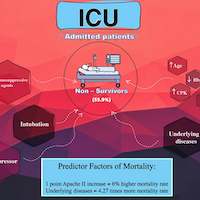The fragility index in randomised controlled trials of interventions for aneurysmal subarachnoid hemorrhage
medrxiv.org
Fragility analysis supplements the p-value and risk of bias assessment in the interpretation of results of randomised controlled trials. In this systematic review we determine the fragility index (FI) and fragility quotient (FQ) of randomized trials in aneurysmal subarachnoid hemorrhage.
Randomised controlled trial evidence supporting management of aneurysmal subarachnoid hemorrhage is weaker than indicated by conventional analysis using p-values alone. Increased use of fragility analysis by clinicians and researchers could improve the translation of evidence to practice.
This is a systematic review registered with PROSPERO. Randomised controlled trials in adults with aneurysmal subarachnoid hemorrhage were analysed if they reported a statistically significant primary outcome of mortality, function (e.g. modified Rankin Scale), vasospasm or delayed neurological deterioration.
We identified 3,809 records with 17 randomized trials selected for analysis.
The median fragility index was 3 (inter-quartile range 0-5) and the median fragility quotient was 0.012 (IQR 0-0.034).
6 of 19 trial outcomes (31.6%) had an fragility index of 0. In 7 trials (36.8%), the number of participants lost to follow-up was greater than or equal to the fragility index.
Only 17.6% of trials are at low risk of bias.



















